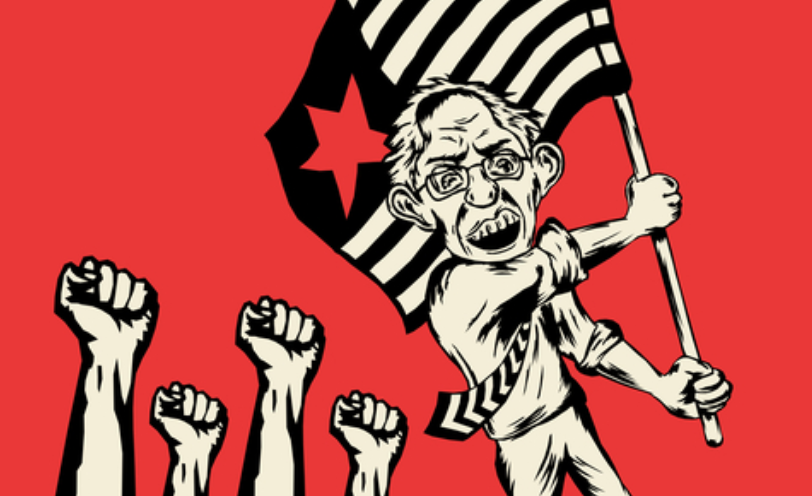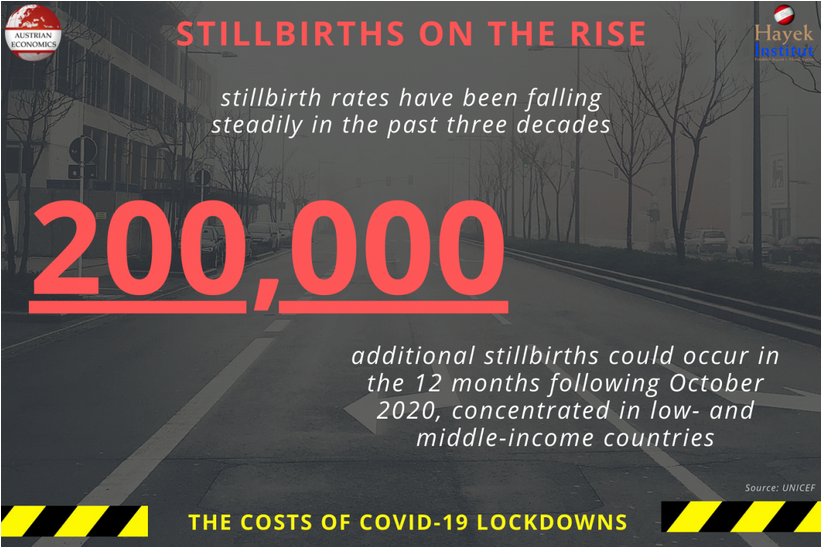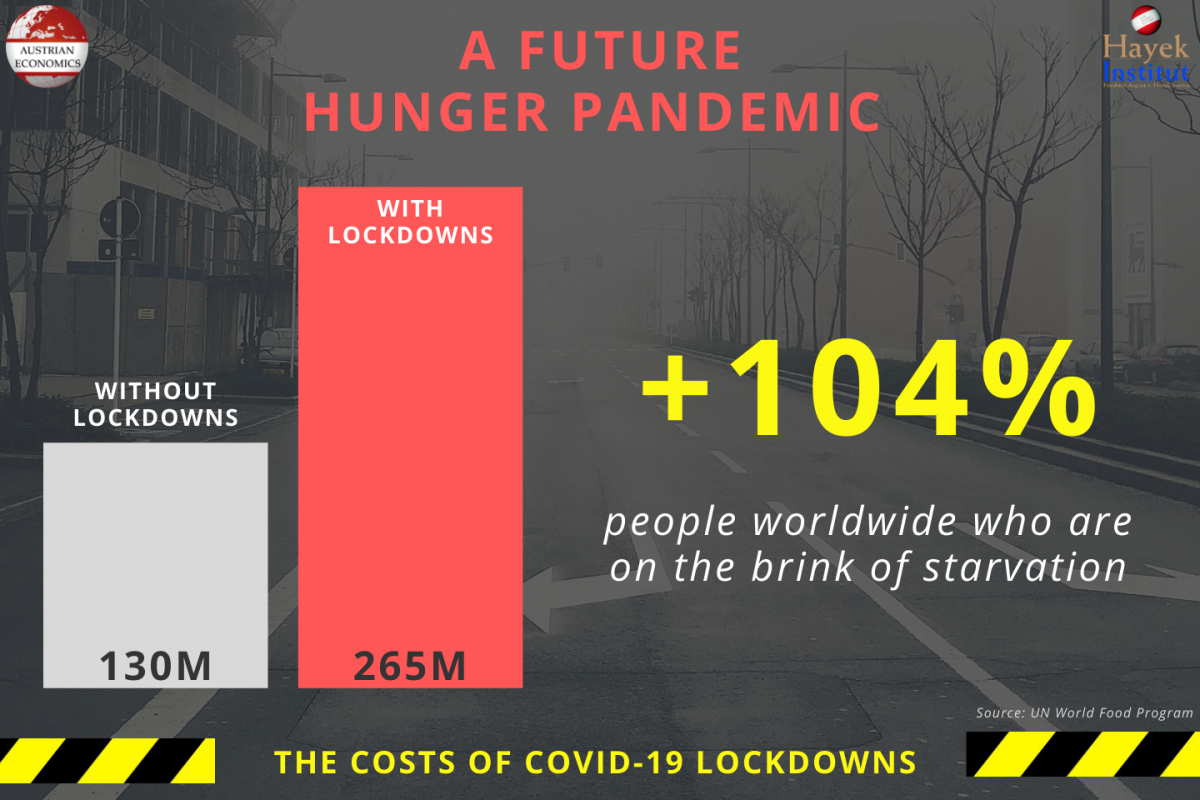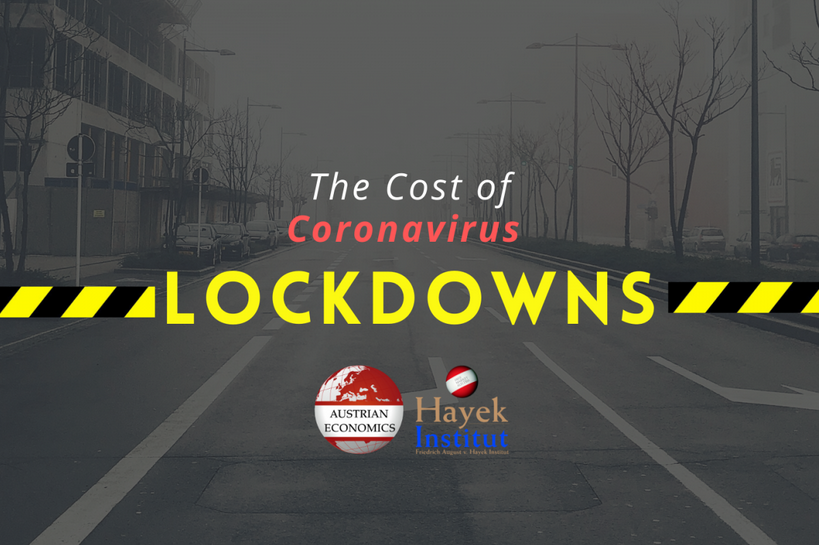The idea of socialism is still alive and well in 2021. Looking at the progressives on the fringes of the Democratic Party – the likes of Bernie Sanders and Elizabeth Warren, one might think they are the real culprits keeping the idea alive. Yet, just looking at the 2020 Democratic Party presidential debates, we can see just how alive socialism truly is. Almost all candidates promised ‘free’ stuff and demanded centrally planned solutions to practically all problems in the world. The now ex-President Trump took a bold step urging the nations of the world to “resist socialism and the misery it brings” in light of the abysmal situation that has unfolded in Venezuela. Furthermore, in the 2019 State of the Union speech, he declared that the United States “will
Topics:
Simon Sarevski considers the following as important: 6b.) Austrian center, 6b) Austrian Economics, blog, Featured, newsletter
This could be interesting, too:
Clemens Schneider writes Café Kyiv
Clemens Schneider writes Germaine de Stael
Clemens Schneider writes Museums-Empfehlung National Portrait Gallery
Clemens Schneider writes Entwicklungszusammenarbeit privatisieren

The idea of socialism is still alive and well in 2021. Looking at the progressives on the fringes of the Democratic Party – the likes of Bernie Sanders and Elizabeth Warren, one might think they are the real culprits keeping the idea alive. Yet, just looking at the 2020 Democratic Party presidential debates, we can see just how alive socialism truly is. Almost all candidates promised ‘free’ stuff and demanded centrally planned solutions to practically all problems in the world.
The now ex-President Trump took a bold step urging the nations of the world to “resist socialism and the misery it brings” in light of the abysmal situation that has unfolded in Venezuela. Furthermore, in the 2019 State of the Union speech, he declared that the United States “will never be a socialist country.”. Let’s hope that never happens, but at the same time acknowledge that the U.S. is far from a free-market capitalist economy either.
The Great Recession of 2007 showed the corporate socialism teeth of the system. Well-connected industries were saved with the burden falling on the taxpayers. The Dodd-Frank Act meant a total overhaul of the financial services industry, allowing the too-big-to-fail banks to grow even larger only a decade later. The solutions brought forth resulted in a U.S. budget deficit exceeding one trillion dollars for the first time in the history of the country.
American corporatism is so entrenched in the system that it rarely depends on who is President, though. When Amazon went “shopping” for new taxpayer-funded headquarters, it brought unlikely enemies together. Both Tucker Carlson and Alexandra Ocasio-Cortez, and disenfranchised protesters were outraged by the incentives and subsidies Amazon was being offered. Sadly, even though Jeff Bezos and Amazon were just playing the game, much of the blame fell upon them, while the system and politicians got away scot-free. During the COVID-19 pandemic we witnessed a similar picture, where once more, the brunt of the public outcry fell upon big business. Somehow, we forgot that big business was allowed to thrive and grow simply because, in the name of safety, the government disallowed small business to operate.
The pinnacle of Obama’s socialist moment is of course is the Affordable Care Act. Trump, on the other hand, since day one, chose a different brand of socialism in the form of a trade war. And what is a trade war if not artificially choosing winners and losers? When the initial dust settled and the cost of the war fell upon small farms, a bailout program was announced. Little did the family farms know at the time, a massive chunk of the aid flowed to big corporations. Even with signing the “winner” trade deal, the damage has been done and farmers still depend on bailouts from the government.
However, he did not stop there. As the COVID-19 crisis has no end in sight, nor has the bottom of the budget deficits. On top of the $2 trillion stimulus package of May 2020, a second $900 billion extension was signed in December. Although student loan forgiveness did not make the final cut, upon broad bipartisan appeal, Trump had included it in the proposal. It seems like neither Trump, nor the general public at large, realizes from the fiasco of the trade war that interfering with the market not only fails to achieve the aimed ends but brings about a less desirable state of affairs than the one hoped to alter.
If you believe the November election was, as Trump put it in the acceptance speech for the Republican presidential nomination, “a fight between socialism and the American dream,” you would be wrong.
Socialism is a system in which the means of production are owned by the state. In addition, the state is the one choosing, what, how and for whom to produce. Anyone with minimal knowledge of 20th century history knows the legacy of socialism. This is probably why, even when losing the election, Trump won the Cuban-Venezuelan vote in the recent election. People who have first-hand experience of the “miracle” of socialism tend to run from it.
But let’s not live in illusions: most political leaders of our day follow some brand of socialism or social democracy. And this will sadly not change anytime soon with Joe Biden in power.
Tags: Blog,Featured,newsletter








